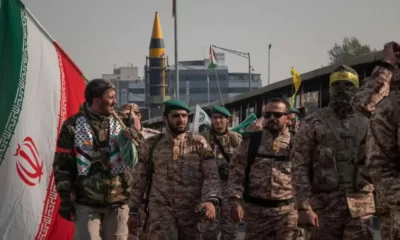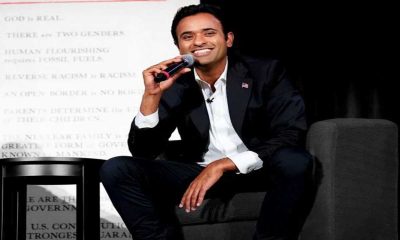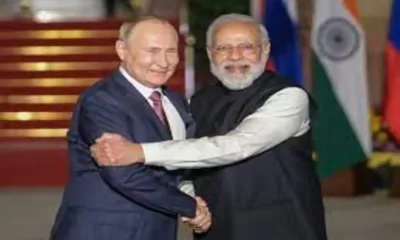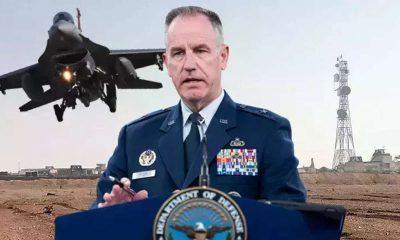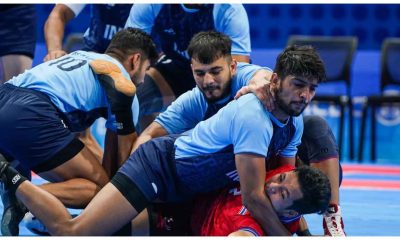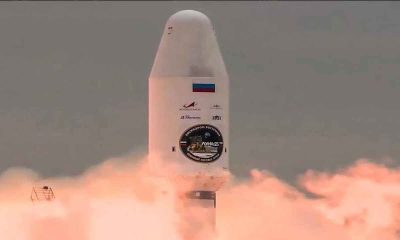Latest world news
Russia, Iran, Turkey propose Syrian Congress to resolve crisis
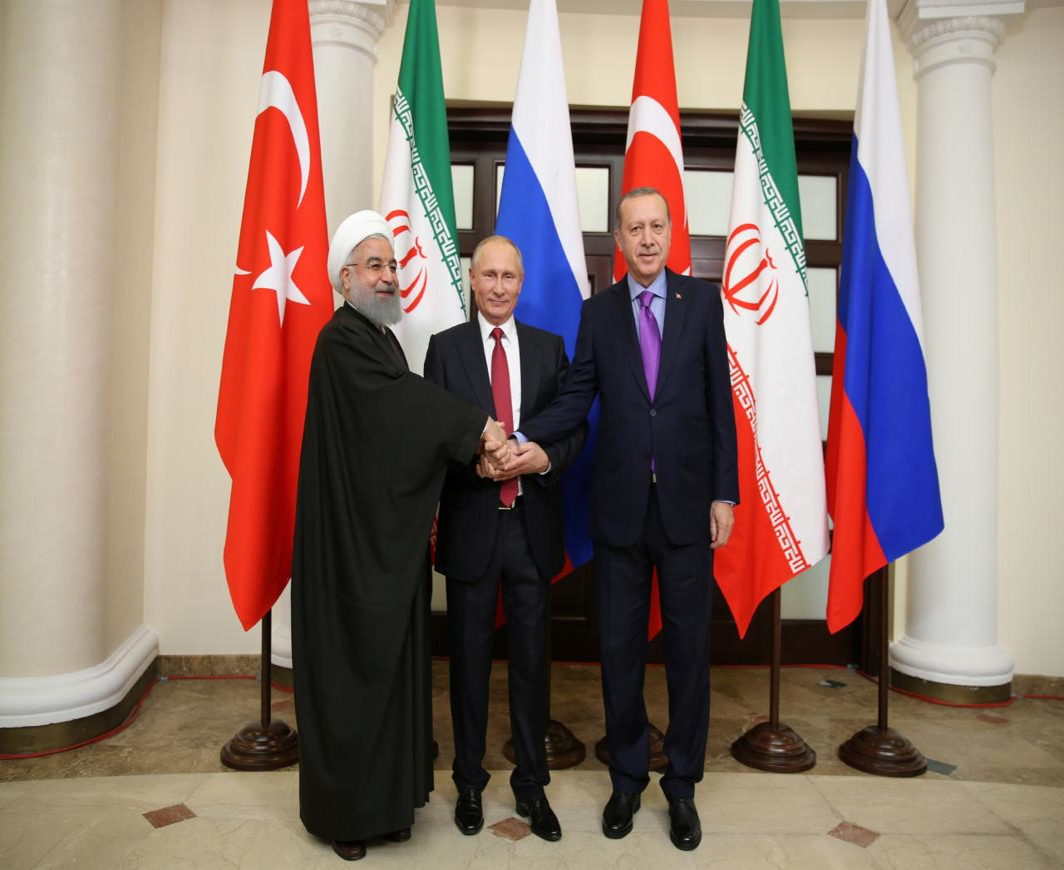
[vc_row][vc_column][vc_column_text]Rival groups to sit across table in Sochi before Nov. 28
The outline for political process for setting Syria’s future was discussed among Russian President Vladimir Putin and his Iranian and Turkish counterparts who have supported a proposal to hold a “Syrian people’s congress” where Bashar al-Assad government officials and opposition figures were expected to across the table.
According to Aljazeera, this was announced by Russian President that the leaders of the two countries have agreed for the proposed congress. Iran has played important role in eradicating terrorists from Syrian territories by providing military advisors while Turkey has recently changed sides. Most overseas terrorists made their way into Syria and Iraq after landing in Istanbul. Turkey was also considered to be supporting anti-Bashar al-Assad governments.
President Putin hosted his Iranian and Turkish counterparts; Hassan Rouhani and Recep Tayyip Erdogan, at a time when some Syrian opposition groups met in Riyadh before the proposed United Nations-sponsored talks in Geneva.
The Russian President, while talking after the trilateral summit, which was preceded with detailed official level interaction, said “The congress will look at the key questions on Syria’s national agenda.” Rouhani and Erdogan were sitting next to him in Sochi, a Black Seas resort.
“First of all, that is the drawing-up of a framework for the future structure of the state, the adoption of a new constitution, and, on the basis of that, the holding of elections under United Nations supervision,” he added.
Putin said he believed a “new stage” had been reached and warned that achieving a political solution in the Syrian crisis would require compromises from stakeholders.
The proposed congress is expected to be held in Sochi prior to the next round of Geneva talks on November 28.
Earlier, Russian leader had hosted Syrian President Bashar al-Assad in Sochi on Monday, who briefed him about the end of military operation against terror groups and thanked Russia for their support in fight against terror in his country.
Russia, Iran and Turkey issued a joint statement underlining the need for all warring sides to release prisoners and hostages, hand over bodies and create the suitable conditions to achieve a lasting truce.
The three leaders also urged international community to provide humanitarian aid and help in clearing Syrian territory of land- mines and restoring the infrastructure destroyed during the conflict.
Hundreds of thousands of people have been killed and more than 12 million people were displaced during seven-year long crisis.
The three countries are the sponsors of the ongoing talks between Syrian government and opposition groups in Kazakhstan’s capital, Astana, as well as act as guarantors for the establishing four “de-escalation zones” across the country.
Erdogan had, till recently, appeared reluctant to support Putin’s idea for a congress bringing all rival groups for holding a national dialogue.
According to Aljazeera’s Rory Challands, “Some people have said that what Putin is trying to do with the Congress idea is bridge the gap between the Astana talks, which are about ceasefires and technical matters, and the much-stalled Geneva talks, which are about a grand political settlement.”
He adds, “This congress would sit in the middle, but it suggests that Putin is trying to shape the future of Constitution of Syria ahead of any future Geneva talks.”[/vc_column_text][/vc_column][/vc_row]
Latest world news
World Earth Day 2024: Google Doodle showcases aerial view of planet’s natural beauty
Google celebrated Earth Day 2024 with a special doodle featuring an aerial view of our planet’s biodiversity.
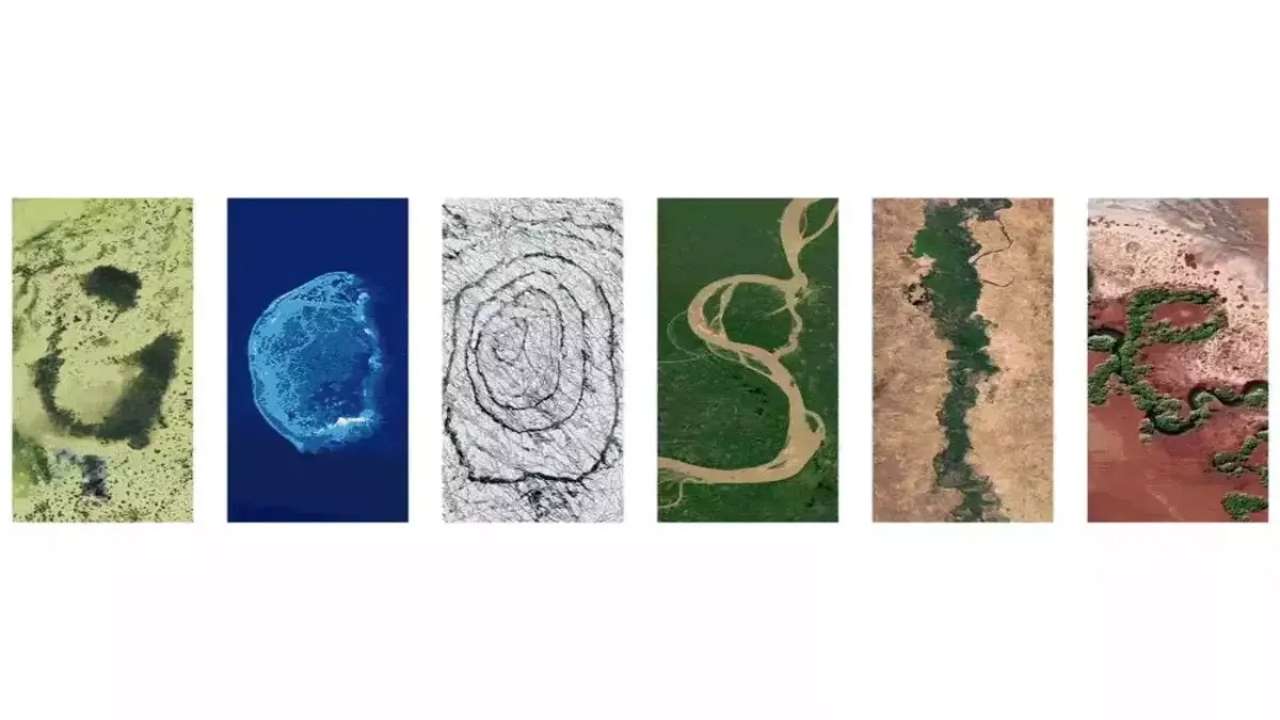
Google shared a doodle today to celebrate World Earth Day 2024, which showcased aerial photos of the planet’s biodiversity and natural beauty. Google reminded us of the importance of protecting planet earth for future generations with the help of this doodle.
The Google letters depict specific locations across the globe where people, communities, and governments work every day to help protect the planet’s natural beauty, biodiversity, and resources, according to the explanation of the annual Earth Day 2024 doodle on their website.
It said, these examples remind us that there’s much more to do to address the climate crisis and biodiversity loss, but also offer the promise of hope and optimism.
The islands of Turks and Caicos are represented by the letter “G.” The islands’ conservation efforts are concentrated on protecting important regions for biodiversity and addressing persistent environmental problems.
The largest reef in the southern Gulf of Mexico and a UNESCO biosphere reserve, Scorpion Reef National Park, is represented by the letter “O” in the Mexican flag.
The letter “O” features Iceland’s Vatnajokull National Park, which was designated as a national park in 2008 following decades of advocacy. The ecology within and surrounding the biggest glacier in Europe is safeguarded by this UNESCO World Heritage Site.
The letter “G” has the Jau National Park in Brazil on it. It is a UNESCO World Heritage Site and one of the biggest forest reserves in South America.
The Great Green Wall of Nigeria is represented by the letter “L,” and the Pilbara Islands Nature Reserves of Australia are represented by the letter “E.”
Meanwhile, Earth Day is a worldwide event that promotes protection of the environment every year. April 22 serves as a reminder of the importance of conservation efforts and sustainable practices to guarantee a healthier world and a brighter future.
The occasion inspires people across the world to come together and take action to protect the environment, strengthening our bonds with nature and promoting good change.
Latest world news
Bigg Boss 14 contestant Rahul Vaidya struggles walking in knee deep water, compares Dubai rains with Mumbai floods
Singer and TV personality Rahul Vaidya was recently stranded in the Dubai rains.

Rahul Vaidya, who was in Dubai ahead of his show which was scheduled to take place today, left the country due to heavy rains and reached Kolkata. The artist shared on social media his encounters in the UAE city, including challenges like walking through knee-deep water. Rahul provided an update regarding the heavy rainfall in Dubai on his Instagram profile.
The Bigg Boss 14 contestant revealed that he was in Kolkata and prepared to do an evening performance. Recalling the terrifying period he went through, Vaidya said there was a lot of confusion and panic in Dubai. The situation was similar to that when heavy floods hit Mumbai in 2005.
Vaiday also posted seval other images and videos of cars that were underwater and flooded roadways. The Bigg Boss 14 contestant, who shared his ordeal, claimed that even though it had just rained for two hours, the situation was dire.
In one of the video, which went viral he can be seen struggling in walking in knee-deep water. He can be also seen holding his sneakers in one hand and with other hand he was seen managing other things.
This is the result of the two hours of rain that it had, he can be heard saying in the video. Vidya also said he dosen’t believe Dubai is accustomed to a lot of rain. Everything had stopped working, he remarked.
After taking part in the first season of the singing reality show Indian Idol, Rahul Vaidya gained widespread recognition. In addition to Bigg Boss, he took part in Khatron Ke Khiladi 11.
Meanwhile, heavy rains that triggered flooding in the UAE and Bahrain, which left 18 people dead in Oman on Sunday and Monday, have paralyzed the financial hub of the Middle East, Dubai.
A lot of incoming flights were diverted from Dubai’s international airport because of the rain. At 7:26 p.m., the busiest airport in the world for foreign visitors stopped accepting new arrivals; a gradual resumption was announced for more than two hours later.
Images of planes navigating flooded tarmacs are making the rounds on social media.
According to pictures shared on social media, the flagship malls Dubai Mall and Mall of the Emirates both experienced heavy floods, while at least one Dubai Metro station had water up to the ankles.
There were several road collapses, severe flooding in residential areas, and numerous reports of leaks from windows, doors, and roofs.
Due to the unfavourable weather, schools around the United Arab Emirates were forced to close, and as more storms are predicted, the closures are anticipated to last until Wednesday. The government of Dubai allowed its staff to work remotely till this Wednesday.
Latest world news
Dubai sky turns green during storm in UAE, video goes viral
The UAE witnessed record-breaking rainfall on Tuesday and the National Centre of Meteorology recorded 254 mm of rainfall in less than 24 hrs in the Khatm Al Shakla area in Al Ain.

1 person was killed in UAE as it witnessed heavy rainfall on Tuesday, stranding commuters, flooding roads, disrupting trains and flights and resulting in water leakage from mall ceilings. The UAE witnessed record-breaking rainfall on Tuesday and the National Centre of Meteorology recorded 254 mm of rainfall in less than 24 hrs in the Khatm Al Shakla area in Al Ain. It is being said that the rainfall was the highest documented since the start of data collection in 1949.
The heavy rainfall in UAE came days after a similar situation in neighbouring Oman, where 13 people were killed in flash floods. Many parts of Oman saw torrential rains, which caused students to be trapped in buses and swept away motorists and trapped people in their homes.
Videos from Dubai circulating on social media showed widespread waterlogging on roads in Abu Dhabi, Dubai and other important cities. This left daily commuters in cars and other vehicles struggling to get back home. Dubai metro station too was seen flooded and closed.
One such video circulating on social media shows the aerial view of the city of Dubai from the top of a building. In the video the stormy winds are seen blowing over the city of Dubai. As the storm intensifies the Dubai sky turns green and ultimately gets covered by heavy rainfall. The video has gone viral on social media with more than 1.1 million views.
Another video showed water leakage from the ceilings of shopping malls, flooding the floors and destroying goods. A video which was shot in the famous Mall of the Emirates, showed pieces of ceiling falling as the rainwater gushed inside. Videos from many outlets of the Deira City Centre mall chain showed escalators being rendered unusable. Majid Al Futtaim, the company which owns the Mall of Emirates, said that the shopping complexes have been kept open and the customers are being sent away from the flooded areas.
-
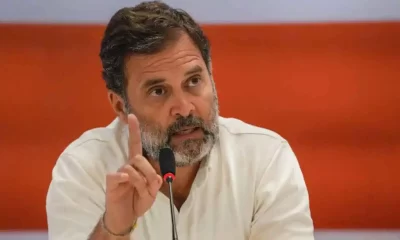
 2024 Lok Sabha Elections8 hours ago
2024 Lok Sabha Elections8 hours agoRahul Gandhi clarifies on wealth survey remark, says aim is to identify injustice
-
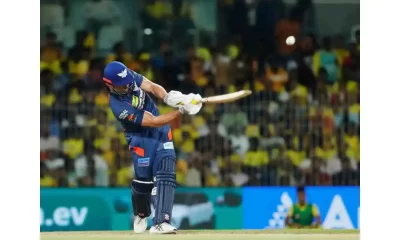
 Cricket news9 hours ago
Cricket news9 hours agoIPL 2024: Marcus Stoinis hits first IPL century as Lucknow Super Giants beat Chennai Super Kings by 6 wickets
-
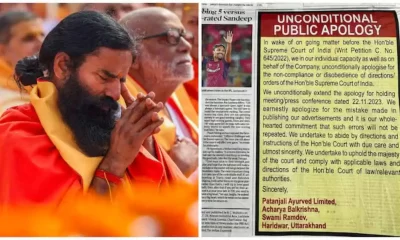
 India News7 hours ago
India News7 hours agoRamdev, Balkrishna publish bigger apology in newspapers after Supreme Court’s rap
-
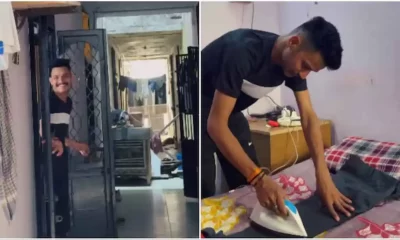
 Trending6 hours ago
Trending6 hours agoA waiter’s life: Social media users go emotional on watching viral video
-
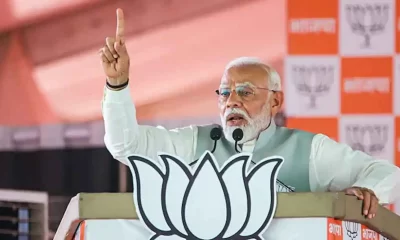
 2024 Lok Sabha Elections4 hours ago
2024 Lok Sabha Elections4 hours agoPM Narendra Modi slams Congress over Sam Pitroda’s inheritance tax remarks, accuses Congress of intending to impose higher taxes
-
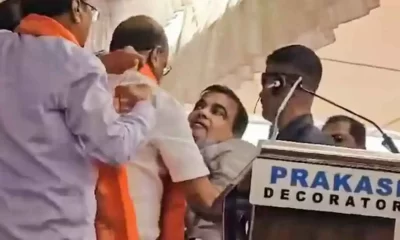
 2024 Lok Sabha Elections2 hours ago
2024 Lok Sabha Elections2 hours agoNitin Gadkari says he’s better now after collapsing at election rally in Maharashtra’s Yavatmal
-
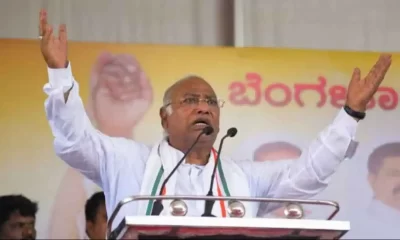
 2024 Lok Sabha Elections1 hour ago
2024 Lok Sabha Elections1 hour agoMallikarjun Kharge vows to continue politics till his last breath to defeat BJP
-

 Entertainment3 hours ago
Entertainment3 hours agoMadhuri Dixit, Karisma Kapoor recreate Dil To Pagal Hai dance battle on Dance Deewane

